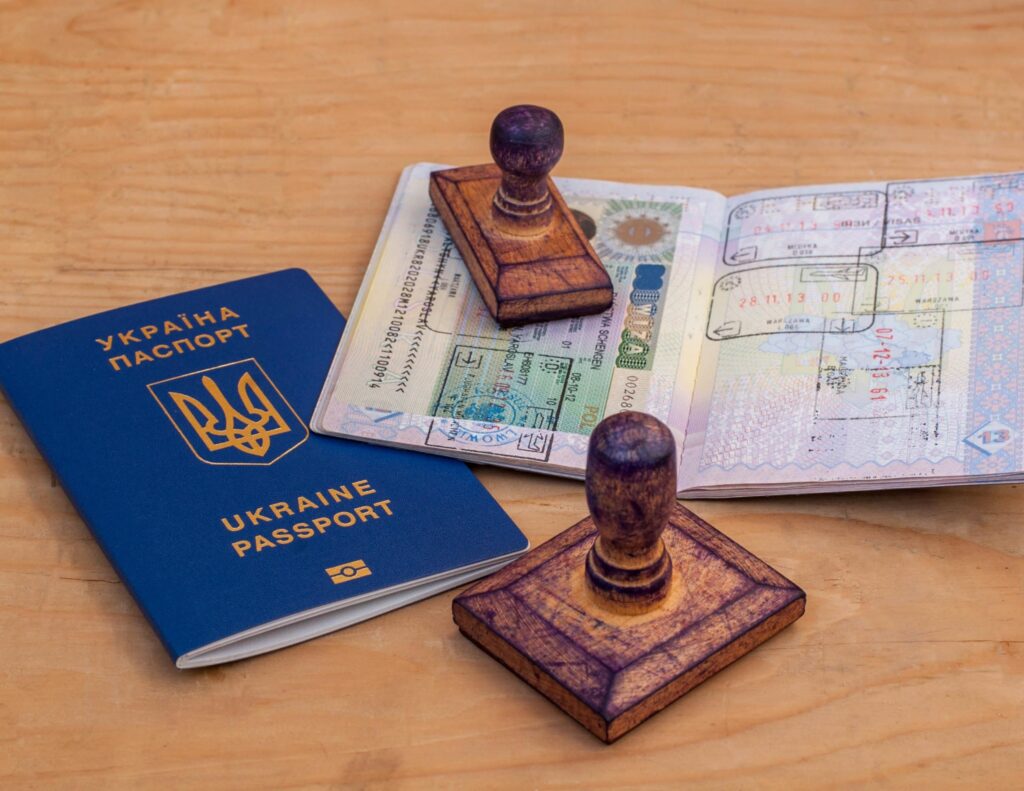
A seamless and effective transfer depends on preparation, yet starting a study abroad journey is an exciting milestone. You can concentrate on the exciting experience ahead by using our thorough pre-departure checklist to help you manage the logistics and cultural adaptations, from making sure you have the required paperwork to comprehending local traditions.
I. Essential Documents and Items to Pack: Your International Student Starter Kit
Passport and Visa: This cannot be negotiated. Make sure your passport is good for at least six months after the time you want to visit. When a passport is about to expire, serious issues may arise. Make several copies of the information page of your passport, both digital and physical, and keep them in different places. Your student visa is just as important. A printed copy of your visa, the notice that your visa was approved, and any other necessary immigration paperwork should be kept close at hand. Think about using password-protected email or cloud storage to safely store digital copies online.
Admission Letter and University Documents:Keep the official admissions letter from your university close at hand. This is proof of your enrolment. Other required documents include student ID cards (if given before departure), program-specific information, and any confirmation letters. Keep these documents collected and handy because you’ll likely need them both when you arrive and during the first registration procedure.
Travel Insurance: It is essential to get international travel insurance. Personal liability, lost luggage, medical crises (such as hospitalisation, surgery, and repatriation), and trip cancellations or interruptions should all be covered. Make sure you comprehend the coverage and claim procedure by carefully going over the policy information. Together with your other vital documents, save a copy of your insurance policy, both digital and physical.
Health Documents: Copies of your vaccination records, prescriptions (including generic names for drugs, as brand names can vary), and any other relevant medical information, like allergy information, should be provided. If your host country asks for proof of specific medical tests or a health clearance letter to finalise your student visa, be sure you have the required documentation on hand. Discuss any pre-existing medical conditions you may have with your doctor before you depart, and obtain any appropriate medications or documentation.
Financial Documents: Save copies of your bank statements showing proof of funding, your scholarship award letter (if applicable), and any other records pertaining to your financial assistance. To prevent any problems with overseas transactions, let your bank know when you will be travelling. Before you depart, think about establishing online banking access.
Accommodation Details:Have the full address and phone number of your lodging, whether it’s a rented flat, homestay, or on-campus living. Print out a map or directions from the rail or airport to your lodging. If you made a reservation using Booking.com or Airbnb, make sure you have the confirmation information on hand.
Emergency Contacts: Write down (and save in your phone) the contact information for your university’s international student office, your local embassy or consulate, and family members or friends who should be contacted in case of an emergency. It’s also wise to share this information with a trusted friend or family member back home.
Travel Essentials: Pack your flight tickets (printouts and digital copies), travel itineraries, any forms required for customs clearance (e.g., customs declaration forms), and confirmation numbers for any pre-booked transportation or tours. Keep these documents organized and easily accessible, as you’ll need them throughout your journey.
Local Currency and Bank Cards: Carry a small amount of local currency for immediate expenses upon arrival, such as transportation from the airport or a quick meal. Don’t carry large sums of cash. Ensure you have your international credit or debit cards ready for use abroad. Check with your bank about any international transaction fees or limitations.
Clothing and Personal Items: Bring clothes that are suitable for the climate where you are going. Bring along any necessary medications, eyeglasses or contact lenses, toiletries (travel-sized versions to save space), essential wardrobe items, and other personal belongings that may help you feel more at home and comfortable (e.g., a favourite book, photos of family and friends). Avoid packing too much! Once you get there, you can always buy the things you need.
II. Tips for a Smooth Transition: Cultural Acclimation and Practicalities
Research the Local Culture and Customs: Before departure, thoroughly research the culture, social norms, and etiquette of your host country. Understanding local customs will help you avoid awkward situations, build rapport with locals, and adapt more quickly. Learn about local customs regarding greetings, dining etiquette, personal space, and communication styles.
Plan Your Arrival: Confirm your arrival time with the university’s international student office and coordinate transportation from the airport to your accommodation. Some universities offer airport pickup services for international students. Having a plan in place will reduce stress upon arrival, especially if you’re arriving late at night or in a new city.
Stay Organized: Organise and make easily available all of your travel supplies and critical documents. To keep things organised, use travel wallets, pouches, or folders. You’ll save time looking for documents and have an easier time going through immigration and customs.
Set Up Local Communication: Arrange for a local SIM card or mobile phone plan ahead of time so you can communicate with your university, family, and friends once you arrive. Consider purchasing a prepaid SIM card at the airport upon arrival or researching local mobile providers beforehand.
Join Online Communities: Join university student groups or online forums where you can connect with other international students. This will provide a valuable support network and help you navigate any challenges you may face. These online communities can also be a great source of information about accommodation, transportation, and local events.
Learn Basic Phrases: If you’re moving to a country where you don’t speak the language, learning a few basic phrases (e.g., “hello,” “thank you,” “where is…?”) will be greatly appreciated by locals and will make your initial interactions much smoother. Even a small effort to learn the local language shows respect for the culture.
Financial Preparation: Inform your bank about your travel plans to avoid any issues with international payments. Inquire about any international transaction fees or limitations. Consider opening a local bank account after you arrive to make transactions easier and potentially avoid some fees.
Stay Connected with Family: Share your travel plans, itinerary, and contact details with your family before leaving. Schedule regular check-ins (phone calls, video chats, or messages) to ease homesickness and ensure you stay in touch. Staying connected with family can provide emotional support during your time abroad.
Prepare for Culture Shock:A typical aspect of the adjustment process is culture shock. When you first arrive in your host country, you should anticipate experiencing some degree of culture shock. Have patience, be open-minded, and allow yourself time to adapt. Feeling overburdened or homesick at first is common, but it will eventually get better.
Pack Smart: Avoid packing too much! Pack necessities, but allow space for local purchases. Keep in mind that you can purchase most items overseas. Packing products that you will need right away upon arrival and items that are more expensive or hard to find in your host nation should be your main priority. To save room and organise your luggage, think about utilising packing cubes.
This pre-departure checklist will help you get ready for a successful and seamless transfer to your new life overseas. You may reduce stress and concentrate on the fascinating academic and cultural adventures that lie ahead by attending to these practicalities. Good luck on your journey!



